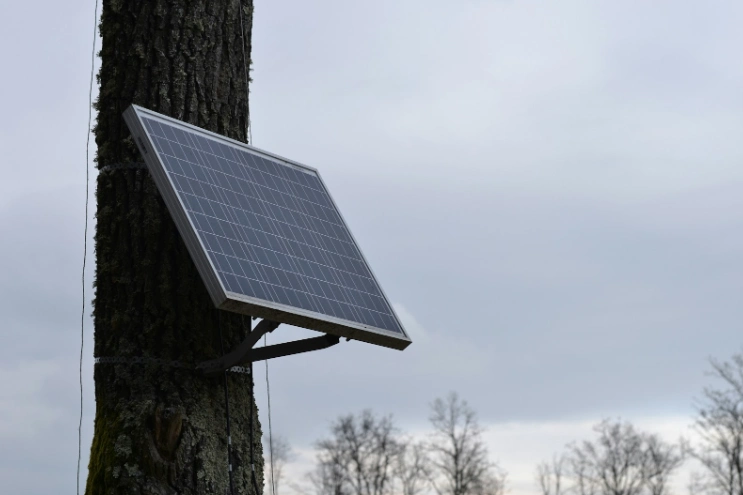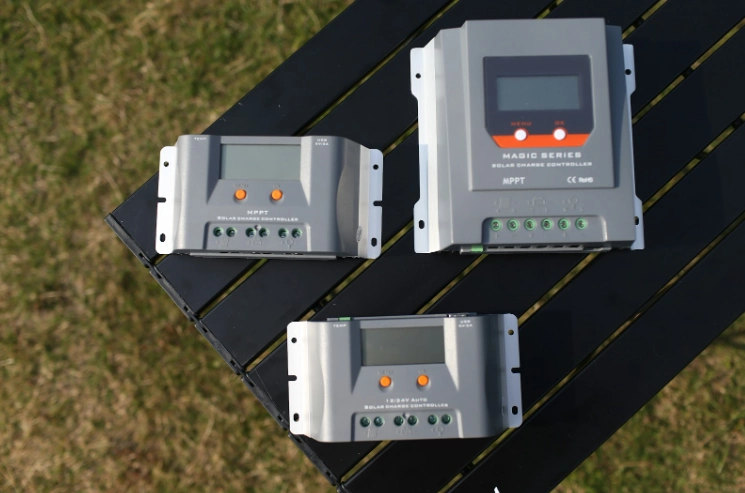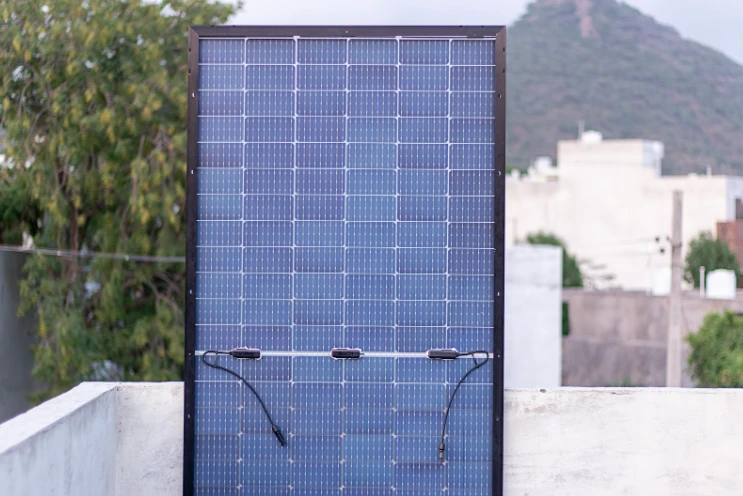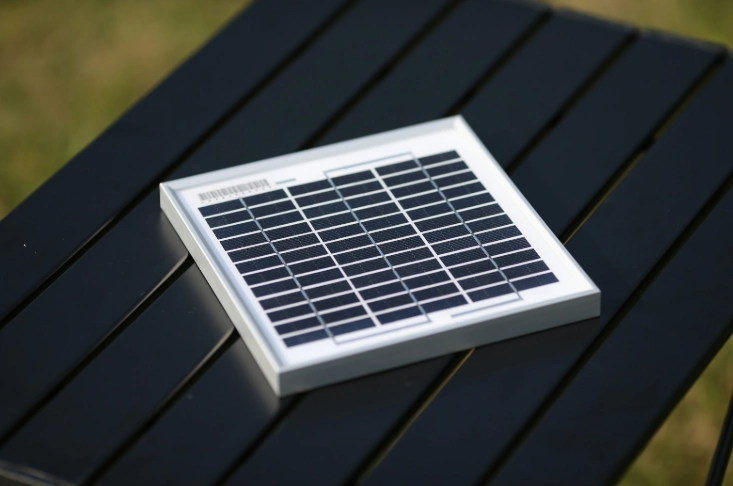Solar energy is a powerful and sustainable resource. It offers a clean alternative to fossil fuels. Many people are turning to solar panel systems for their energy needs.
A solar panel system without a battery is a popular choice. These systems are often called grid-tied systems. They connect directly to the public electricity grid.
Grid-tied systems are cost-effective and efficient. They have lower initial installation costs. This makes them an attractive option for many homeowners and businesses.
These systems are simple to install and maintain. They do not require complex battery management. This simplicity is a major advantage.
Solar panel systems without batteries offer flexibility. They allow for net metering, which can reduce electricity bills. Excess energy is fed back to the grid.
These systems are ideal for areas with reliable grid infrastructure. They provide power during daylight hours. At night, they rely on the grid for electricity.
Choosing a solar panel system without a battery can lead to significant savings. It also contributes to a greener planet. This choice supports energy independence and sustainability.
Many people are turning to solar panel systems for their energy needs.
Sunterjee LLC, a trusted name in solar technology, offers expert guidance and installation for both residential solar installer and commercial solar installer projects.
Understanding Solar Panel Systems Without Batteries
Solar panel systems without batteries directly tie into the electric grid. This setup eliminates the need for energy storage. Thus, it simplifies the overall system design.
Grid-tied solar systems convert sunlight into electricity. They use a network of panels and an inverter. The inverter is crucial because it changes direct current (DC) into alternating current (AC).
These systems have several components:
- Solar panels
- Inverter
- Electrical panel
- Utility meter
Solar energy powers the home or business during daylight. Excess energy flows back to the grid. This process earns credits through net metering, reducing electric bills.
One major appeal of grid-tied systems is their cost-effectiveness. Unlike battery systems, they have a lower upfront cost. This appeals to those looking for an economical investment.
Grid reliability is a critical factor. In areas with steady electric grids, these systems work seamlessly. When sunlight is unavailable, grid power provides backup energy.
Overall, solar panel systems without batteries offer a straightforward way to harness solar energy. Their benefits make them a popular choice for eco-conscious individuals and businesses.

How Grid-Tied Solar Panel Systems Work
Grid-tied solar panel systems operate by converting solar energy into electricity for immediate use. During daylight, solar panels capture sunlight and generate direct current (DC) electricity. The inverter then converts this DC electricity to alternating current (AC), suitable for home appliances and the electric grid.
These systems seamlessly integrate with the utility grid. They ensure a consistent power supply to the household, using grid power when solar production is insufficient. When the system generates more electricity than needed, the excess is fed back into the grid.
Key processes involved include:
- Solar energy is captured by the panels.
- DC to AC conversion through the inverter.
- Electricity flow: Power is used first in the home; excess is exported.
- Net metering credits are applied for excess electricity.
The absence of batteries simplifies operation. Grid-tied systems rely on the grid’s constant availability, ensuring energy needs are met day and night. This approach maximizes efficiency since there’s no energy loss associated with battery storage. Consequently, grid-tied solar systems offer straightforward and effective means to enjoy the benefits of solar energy while maintaining power stability.
Key Components of a Battery-Free Solar System
A battery-free solar panel system consists of several essential components that work together seamlessly. These components ensure efficient operation and integration with the electric grid. Each part plays a crucial role in converting sunlight into usable electrical energy.
The main components of a solar system without batteries are:
- Solar panels capture sunlight and convert it into electricity.
- Inverters convert the direct current (DC) produced by panels into alternating current (AC).
- Metering devices are used to measure electricity production and consumption.
- Connection equipment for linking the system to the electrical grid.
Other important elements include mounting structures, which secure solar panels to roofs or ground spaces, ensuring optimal sunlight exposure. Safety equipment like disconnect switches and overcurrent protection is also crucial. Each of these components must be selected carefully and installed properly to ensure maximum efficiency and longevity. Properly integrated, they guarantee the system’s effectiveness and seamless operation, contributing to energy cost savings and environmental benefits by harnessing solar power without the need for storage solutions.
Each of these components must be selected carefully and installed properly to ensure maximum efficiency and longevity.
Sunterjee LLC, operating as both a residential solar installer and commercial solar installer, ensures high-quality system integration backed by industry expertise and customer satisfaction.
Cost Benefits of Solar Panel Systems Without Batteries
Choosing a solar panel system without a battery can lead to significant cost savings. The absence of battery storage reduces the overall expense of the installation process. Without batteries, the upfront costs are notably lower.
Grid-tied systems, which do not use batteries, benefit from several economic advantages. These systems are simpler, involving fewer components, thus decreasing both material and labor costs during installation. This simplicity not only saves money but also time.
Ongoing expenses are also minimized in battery-free solar systems. Maintenance costs decline due to fewer potential points of failure. Batteries often require regular servicing or replacement, which adds to lifetime costs. By eliminating these needs, solar systems without batteries prove financially advantageous.
Another financial perk comes from net metering, allowing homeowners to earn credits for excess electricity sent back to the grid. These credits can help offset electricity bills, providing a further financial incentive.
Key cost benefits include:
- Lower upfront installation costs.
- Reduced maintenance expenses.
- Financial incentives from net metering.
In summary, solar systems without batteries offer a more cost-effective solution for those looking to transition to renewable energy. Focusing on initial savings and efficiency can provide substantial long-term economic benefits, making them an attractive choice for budget-conscious homeowners and businesses alike.
Solar Power Efficiency: Maximizing Output Without Storage
Solar panel systems without batteries excel in converting sunlight to usable energy efficiently. By harnessing direct energy use, these systems minimize energy conversion losses associated with battery storage. The immediate consumption or grid-fed power boosts overall efficiency.
Without the complications of charging and discharging cycles, battery-free systems maintain steady performance. Energy flows directly from panels into the home or business, or back to the grid, ensuring high rates of solar power efficiency.
Efficiency relies heavily on the quality of panels and inverters used. Advancements in technology have improved these components, enhancing the overall output of solar systems. Modern photovoltaic panels capture sunlight more effectively, even in low-light conditions.
Key efficiency features include:
- Direct energy use without storage losses.
- Stable performance without charge/discharge cycles.
- Advanced solar technology improves energy capture.
Maximizing output is crucial for both economic and environmental reasons. Efficient solar systems reduce reliance on non-renewable sources and decrease electricity costs. Choosing a solar panel system without batteries amplifies these benefits by streamlining energy conversion and usage processes. This approach promotes an effective and sustainable method of harnessing solar energy.

Environmental Advantages and Sustainability
Solar panel systems without batteries are champions of green energy. They lower their carbon footprint by reducing reliance on fossil fuels. Without batteries, these systems eliminate manufacturing and disposal impacts associated with battery use.
A significant benefit is the reduction of hazardous waste. Battery production and disposal often involve chemicals harmful to the environment. By opting for battery-free systems, users bypass these concerns, promoting a cleaner, more sustainable planet.
Solar panel systems without batteries support grid stability. By feeding excess energy back to the grid, they reduce the demand for fossil fuel-based power generation. This helps communities lower overall emissions and supports broader renewable energy adoption.
Key environmental benefits include:
- No chemical waste from batteries.
- Lower dependence on fossil fuels.
- Enhanced grid stability with reduced peak demand.
Sustainability is not only about reducing emissions but also about making informed choices. By choosing a solar panel system without batteries, users invest in long-term environmental health. This approach offers a practical solution for those seeking to make a positive environmental impact with their energy use.
Maintenance and Longevity: Simplicity and Reliability
Solar panel systems without batteries offer straightforward maintenance. The absence of batteries means fewer components to monitor. This simplicity makes these systems user-friendly and reliable for long-term use.
Battery-free systems have fewer technical concerns. Without batteries, there are no worries about battery degradation or replacement. This translates to fewer service calls and reduced maintenance costs over time.
Longevity is another strength of these systems. Solar panels typically last 25 years or more with minimal upkeep. This durability is enhanced without the added complexity of battery-related issues.
Here are the key maintenance benefits:
- Fewer components to service.
- No battery replacement required.
- Longer lifespan with minimal intervention.
Overall, solar panel systems without batteries provide peace of mind. They offer a durable solution that requires little ongoing attention. This reliability makes them an attractive choice for those seeking a hassle-free renewable energy solution.
Net Metering and Utility Savings
Net metering is a significant advantage for solar panel systems without batteries. This setup allows excess electricity to be sent back to the grid. Homeowners can earn credits for this surplus energy, which can offset future bills.
Utility savings accumulate as these credits reduce electricity costs. During sunny months, excess energy generation becomes a valuable financial benefit. Over time, this leads to consistent savings on electricity expenses.
Net metering also supports energy efficiency at the community level. By contributing to the grid, solar users help stabilize the local electricity supply. This sharing of resources promotes sustainable energy practices on a larger scale.
Benefits of net metering include:
- Reducing electricity bills through energy credits.
- Supporting local grid stability and efficiency.
- Incentivizing renewable energy through practical benefits.
These savings and sustainability efforts make battery-free solar systems appealing. They offer a balanced approach to renewable energy by utilizing existing infrastructure. This integration with the grid exemplifies a smart and forward-thinking energy solution.
Installation Considerations for Battery-Free Solar Systems
When planning a solar panel system without a battery, several factors should be considered for an effective installation. One major benefit is the simplicity involved, as there’s no need for complex battery integration. This can lead to a smoother and quicker installation process, saving both time and labor costs.
However, the location for solar panel installation plays a crucial role. Ensure that your solar panels have optimal exposure to sunlight. This means selecting a spot that receives abundant direct sunlight, free from obstructions like trees or tall buildings. Efficient sun exposure is essential for maximizing solar power efficiency.
Moreover, you should work with a qualified installer to ensure proper setup. Choose an installer experienced with grid-tied systems to avoid potential issues. It’s important to ensure compatibility with local grid requirements and regulations, as these vary.
Key considerations include:
- Selecting an optimal location for sunlight exposure.
- Hiring experienced and certified solar installers.
- Ensuring compliance with local grid regulations.
Taking these factors into account ensures that your solar panel system is not only installed correctly but also operates efficiently. This upfront planning contributes to long-term success and satisfaction with your solar investment.

Limitations and When to Consider Battery Storage
While solar panel systems without batteries are highly efficient during daylight, they have limitations. One major drawback is reliance on the grid when the sun isn’t shining. This dependence can result in power interruptions during outages.
Battery storage can be a wise consideration in specific situations. If you live in an area with frequent power outages, batteries provide backup power when needed. This ensures a continuous energy supply, even during blackouts. Additionally, batteries enable energy usage during nighttime without drawing from the grid.
Here are scenarios where battery storage is beneficial:
- Frequent grid outages in your area.
- Desire for backup power during emergencies.
- Need for energy independence from the grid.
Batteries also offer economic benefits. They allow storing excess power to use later, reducing reliance on grid electricity. However, they add complexity and cost to the system. Understanding these trade-offs helps in making an informed decision about solar energy solutions.
Is a Solar Panel System Without a Battery Right for You?
Deciding if a solar panel system without a battery is suitable for you involves evaluating your energy needs and circumstances. Consider your location’s reliability on the grid and your daily energy consumption patterns. If you live in an area with stable electricity, this type of system may be ideal.
Battery-free systems are often optimal for those looking to reduce their carbon footprint while maintaining a connection to the grid. They are cost-effective and simpler to maintain, thus appealing to environmentally conscious individuals seeking economical solutions.
Key factors to consider include:
- Stability and reliability of your local power grid.
- Budget for initial installation and maintenance.
- Daytime energy usage versus overnight needs.
Ultimately, your choice will depend on balancing cost with the convenience and sustainability benefits you seek from a solar power system.
Conclusion: Embracing the Future of Solar Energy
Solar panel systems without batteries present a compelling way forward for renewable energy. They bring together cost-effectiveness, simplicity, and sustainability. As the technology for solar panels continues to advance, the appeal of these grid-tied systems will only grow.
These systems offer households and businesses the chance to contribute to a cleaner environment while enjoying long-term savings and reliability. By embracing such solutions, we move closer to a future powered by sustainable energy. The shift to solar not only benefits individuals but also the planet, making it a worthwhile consideration for anyone interested in renewable energy progress.

Sneha Shah is the owner and driving force behind transformative solar solutions for homes and businesses. With 15+ years in biotech and a strong foundation in project management and sustainability, she bridges technical expertise with market insight. Sneha is also a mentor and clean energy advocate, passionate about expanding solar access to underserved communities.

